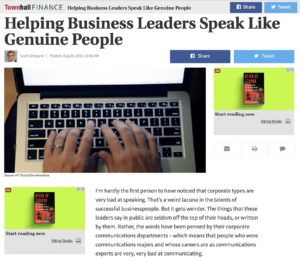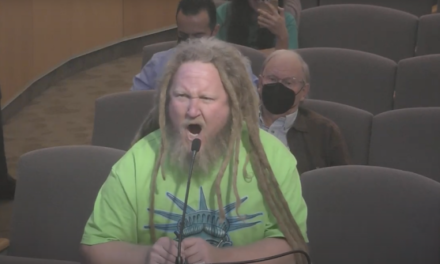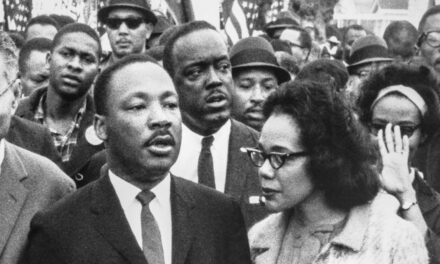LTP News Sharing:
In the tradition of White House Press Secretary Jen Psaki always wanting to “circle back” on the tough questions, CEOs are increasingly using jargon to sound more expert-like and to get around having to give straight answers.
 As Free Enterprise Project Director Scott Shepard explains in a Townhall commentary, this tactic highlights that the people they hire to handle their communications experts “are very, very bad at communicating.”
As Free Enterprise Project Director Scott Shepard explains in a Townhall commentary, this tactic highlights that the people they hire to handle their communications experts “are very, very bad at communicating.”
It seems wasteful to make the extra effort and risk the confusion with a $5 word when a two-bit one would suffice.
Scott notes that he was at a beverage company’s shareholder meeting when a CEO made a statement about “the robust new flavor profile of the beverage experience.” Citing this example of the “linguistic monstrosities” that are being thrown around these days, he comments that “I would have fired absolutely everyone in the communications department – everyone – and told the shareholders, ‘We changed this drink. It tastes better.’”
Unless, of course, they were talking about New Coke.
And it’s not just at corporate meetings. This gibberish has invaded peoples’ homes as they try to relax:
Consider a standard question before many Hulu ads: “Which ad experience would you prefer?” Ad experience? C’mon. Almost any other way to ask which ad I want to watch would sound more like it had come from a human being rather than a communications department.
I once watched some guys at Home Depot take down a sign that said “Flooring” to make room for one that said “Flooring Solutions.” And this was fairly recently. Who on earth still thinks that the word still has any incantatory power, if it ever had any at all?
“I just can’t believe that it helps corporate profits – or anything at all – to mangle the language the way business people so often do,” Scott remarks.
To read all of Scott’s commentary – “Helping Business Leaders Speak Like Genuine People” – click here to go to the Townhall website.

Author: David Almasi







